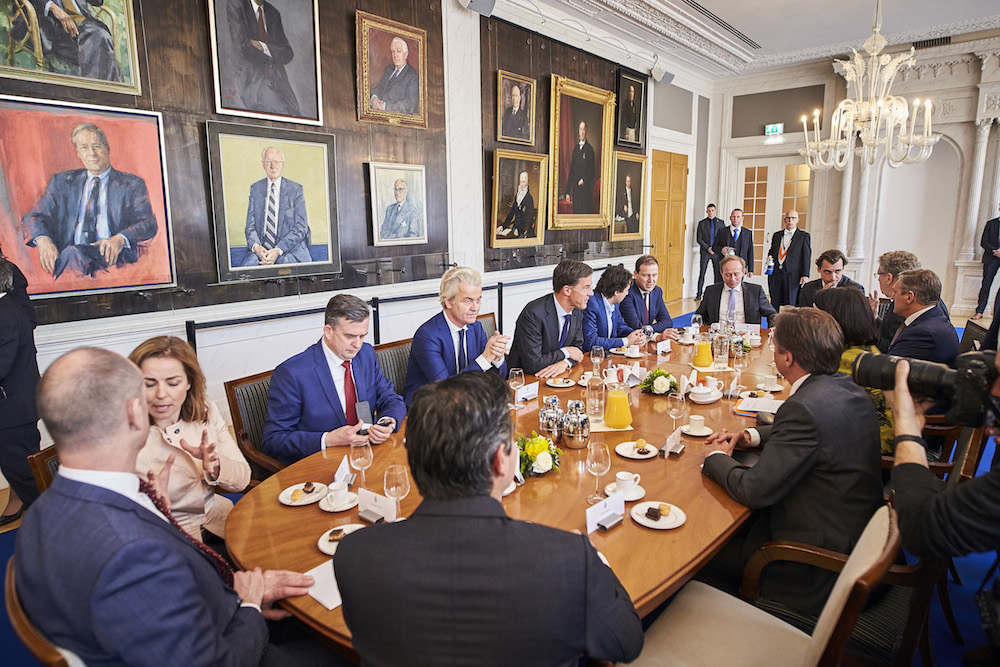Dutch election 2017: Health minister Edith Schippers to start formation process

The leaders of the 13 parties elected to the Dutch 150 seat parliament met for the first time on Thursday afternoon and asked health minister Edith Schippers to start the process of forming a new government.
Schippers has taken on the role of verkenner – who will sound out the parties about the make-up of the next coalition. According to parliamentary chairman Khadija Arib, Schippers aims to have her report completed by next Wednesday so it can be debated by the new line up of MPs on Thursday.
Once that has happened, work on creating consensus between parties likely to form the new cabinet can begin.
Consensus
Experts agree that Mark Rutte’s VVD is likely to link up with the Christian Democrats and D66 Liberals, but opinion is divided about the fourth party. ChristenUnie, with five seats, would help create a coalition with 76 seats in parliament, which may be considered too vulnerable.
The left wing green party GroenLinks, who won 10 seats and are now on 14, is also an option, although their inclusion is likely to be more problematic, experts say.
Rutte, who seems set to be leading his third cabinet, told VVD party workers on Thursday he is proud of the result. But ‘it also brings with it great obligations,’ Rutte said, before refering to the party’s eight-seat loss.
Labour
As the dust settles on the election results, the Labour party (PvdA) has begun asking why its vote collapsed so dramatically. Labour, a partner in the outgoing coalition, polled 38 seats in 2012 but now has just nine MPs.
Several senior party members have already suggested that the party should consider dissolving itself. Party chairman Hans Spekman, who has already said he sees no reason to resign, will face a no-confidence vote at a party meeting on Saturday.
Among the Labour supporters who will not be returning to parliament are trade minister Lilianne Ploumen, who launched the She Decides movement in response to US president Donald Trump’s withdrawal of support for abortion initiatives.
Ahmed Marcouch, a outspoken Labour MP from Amsterdam, who was in 14th place on the party list, is also out of a job.
Turnout
Turnout on Wednesday was around 80%, up from 74% in 2008. The lowest turnout was in Heerlen, where 72% of people voted. Turnout topped 130% on the Wadden Sea island of Schiermonnikoog, where many holidaymakers also cast their votes.
Another noteworthy result was booked on the former island of Urk, where the fundamentalist Protestant SGP won 56% of the vote.
The official results will be published next Tuesday, when it will also become clear if any candidate MPs have received enough preference votes to make it into parliament at the expense of their colleagues.
Although the new MPs will take their seats next week, the current line-up of ministers will remain in office in a caretaker role until a new coalition has been established.
For the election results and party reactions, check out the DutchNews.nl election special.
Thank you for donating to DutchNews.nl.
We could not provide the Dutch News service, and keep it free of charge, without the generous support of our readers. Your donations allow us to report on issues you tell us matter, and provide you with a summary of the most important Dutch news each day.
Make a donation